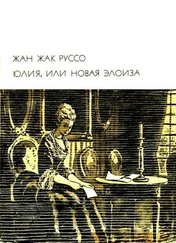Жан-Жак Руссо - Emile
Здесь есть возможность читать онлайн «Жан-Жак Руссо - Emile» — ознакомительный отрывок электронной книги совершенно бесплатно, а после прочтения отрывка купить полную версию. В некоторых случаях можно слушать аудио, скачать через торрент в формате fb2 и присутствует краткое содержание. Жанр: foreign_antique, literature_18, foreign_edu, на английском языке. Описание произведения, (предисловие) а так же отзывы посетителей доступны на портале библиотеки ЛибКат.
- Название:Emile
- Автор:
- Жанр:
- Год:неизвестен
- ISBN:нет данных
- Рейтинг книги:4 / 5. Голосов: 1
-
Избранное:Добавить в избранное
- Отзывы:
-
Ваша оценка:
- 80
- 1
- 2
- 3
- 4
- 5
Emile: краткое содержание, описание и аннотация
Предлагаем к чтению аннотацию, описание, краткое содержание или предисловие (зависит от того, что написал сам автор книги «Emile»). Если вы не нашли необходимую информацию о книге — напишите в комментариях, мы постараемся отыскать её.
Emile — читать онлайн ознакомительный отрывок
Ниже представлен текст книги, разбитый по страницам. Система сохранения места последней прочитанной страницы, позволяет с удобством читать онлайн бесплатно книгу «Emile», без необходимости каждый раз заново искать на чём Вы остановились. Поставьте закладку, и сможете в любой момент перейти на страницу, на которой закончили чтение.
Интервал:
Закладка:
Man is born to suffer; pain is the means of his preservation. His childhood is happy, knowing only pain of body. These bodily sufferings are much less cruel, much less painful, than other forms of suffering, and they rarely lead to self-destruction. It is not the twinges of gout which make a man kill himself, it is mental suffering that leads to despair. We pity the sufferings of childhood; we should pity ourselves; our worst sorrows are of our own making.
The new-born infant cries, his early days are spent in crying. He is alternately petted and shaken by way of soothing him; sometimes he is threatened, sometimes beaten, to keep him quiet. We do what he wants or we make him do what we want, we submit to his whims or subject him to our own. There is no middle course; he must rule or obey. Thus his earliest ideas are those of the tyrant or the slave. He commands before he can speak, he obeys before he can act, and sometimes he is punished for faults before he is aware of them, or rather before they are committed. Thus early are the seeds of evil passions sown in his young heart. At a later day these are attributed to nature, and when we have taken pains to make him bad we lament his badness.
In this way the child passes six or seven years in the hands of women, the victim of his own caprices or theirs, and after they have taught him all sorts of things, when they have burdened his memory with words he cannot understand, or things which are of no use to him, when nature has been stifled by the passions they have implanted in him, this sham article is sent to a tutor. The tutor completes the development of the germs of artificiality which he finds already well grown, he teaches him everything except self-knowledge and self-control, the arts of life and happiness. When at length this infant slave and tyrant, crammed with knowledge but empty of sense, feeble alike in mind and body, is flung upon the world, and his helplessness, his pride, and his other vices are displayed, we begin to lament the wretchedness and perversity of mankind. We are wrong; this is the creature of our fantasy; the natural man is cast in another mould.
Would you keep him as nature made him? Watch over him from his birth. Take possession of him as soon as he comes into the world and keep him till he is a man; you will never succeed otherwise. The real nurse is the mother and the real teacher is the father. Let them agree in the ordering of their duties as well as in their method, let the child pass from one to the other. He will be better educated by a sensible though ignorant father than by the cleverest master in the world. For zeal will atone for lack of knowledge, rather than knowledge for lack of zeal. But the duties of public and private business! Duty indeed! Does a father's duty come last. [Footnote: When we read in Plutarch that Cato the Censor, who ruled Rome with such glory, brought up his own sons from the cradle, and so carefully that he left everything to be present when their nurse, that is to say their mother, bathed them; when we read in Suetonius that Augustus, the master of the world which he had conquered and which he himself governed, himself taught his grandsons to write, to swim, to understand the beginnings of science, and that he always had them with him, we cannot help smiling at the little people of those days who amused themselves with such follies, and who were too ignorant, no doubt, to attend to the great affairs of the great people of our own time.] It is not surprising that the man whose wife despises the duty of suckling her child should despise its education. There is no more charming picture than that of family life; but when one feature is wanting the whole is marred. If the mother is too delicate to nurse her child, the father will be too busy to teach him. Their children, scattered about in schools, convents, and colleges, will find the home of their affections elsewhere, or rather they will form the habit of caring for nothing. Brothers and sisters will scarcely know each other; when they are together in company they will behave as strangers. When there is no confidence between relations, when the family society ceases to give savour to life, its place is soon usurped by vice. Is there any man so stupid that he cannot see how all this hangs together?
A father has done but a third of his task when he begets children and provides a living for them. He owes men to humanity, citizens to the state. A man who can pay this threefold debt and neglect to do so is guilty, more guilty, perhaps, if he pays it in part than when he neglects it entirely. He has no right to be a father if he cannot fulfil a father's duties. Poverty, pressure of business, mistaken social prejudices, none of these can excuse a man from his duty, which is to support and educate his own children. If a man of any natural feeling neglects these sacred duties he will repent it with bitter tears and will never be comforted.
But what does this rich man do, this father of a family, compelled, so he says, to neglect his children? He pays another man to perform those duties which are his alone. Mercenary man! do you expect to purchase a second father for your child? Do not deceive yourself; it is not even a master you have hired for him, it is a flunkey, who will soon train such another as himself.
There is much discussion as to the characteristics of a good tutor. My first requirement, and it implies a good many more, is that he should not take up his task for reward. There are callings so great that they cannot be undertaken for money without showing our unfitness for them; such callings are those of the soldier and the teacher.
"But who must train my child?" "I have just told you, you should do it yourself." "I cannot." "You cannot! Then find a friend. I see no other course."
A tutor! What a noble soul! Indeed for the training of a man one must either be a father or more than man. It is this duty you would calmly hand over to a hireling!
The more you think of it the harder you will find it. The tutor must have been trained for his pupil, his servants must have been trained for their master, so that all who come near him may have received the impression which is to be transmitted to him. We must pass from education to education, I know not how far. How can a child be well educated by one who has not been well educated himself!
Can such a one be found? I know not. In this age of degradation who knows the height of virtue to which man's soul may attain? But let us assume that this prodigy has been discovered. We shall learn what he should be from the consideration of his duties. I fancy the father who realises the value of a good tutor will contrive to do without one, for it will be harder to find one than to become such a tutor himself; he need search no further, nature herself having done half the work.
Some one whose rank alone is known to me suggested that I should educate his son. He did me a great honour, no doubt, but far from regretting my refusal, he ought to congratulate himself on my prudence. Had the offer been accepted, and had I been mistaken in my method, there would have been an education ruined; had I succeeded, things would have been worse—his son would have renounced his title and refused to be a prince.
I feel too deeply the importance of a tutor's duties and my own unfitness, ever to accept such a post, whoever offered it, and even the claims of friendship would be only an additional motive for my refusal. Few, I think, will be tempted to make me such an offer when they have read this book, and I beg any one who would do so to spare his pains. I have had enough experience of the task to convince myself of my own unfitness, and my circumstances would make it impossible, even if my talents were such as to fit me for it. I have thought it my duty to make this public declaration to those who apparently refuse to do me the honour of believing in the sincerity of my determination. If I am unable to undertake the more useful task, I will at least venture to attempt the easier one; I will follow the example of my predecessors and take up, not the task, but my pen; and instead of doing the right thing I will try to say it.
Читать дальшеИнтервал:
Закладка:
Похожие книги на «Emile»
Представляем Вашему вниманию похожие книги на «Emile» списком для выбора. Мы отобрали схожую по названию и смыслу литературу в надежде предоставить читателям больше вариантов отыскать новые, интересные, ещё непрочитанные произведения.
Обсуждение, отзывы о книге «Emile» и просто собственные мнения читателей. Оставьте ваши комментарии, напишите, что Вы думаете о произведении, его смысле или главных героях. Укажите что конкретно понравилось, а что нет, и почему Вы так считаете.












